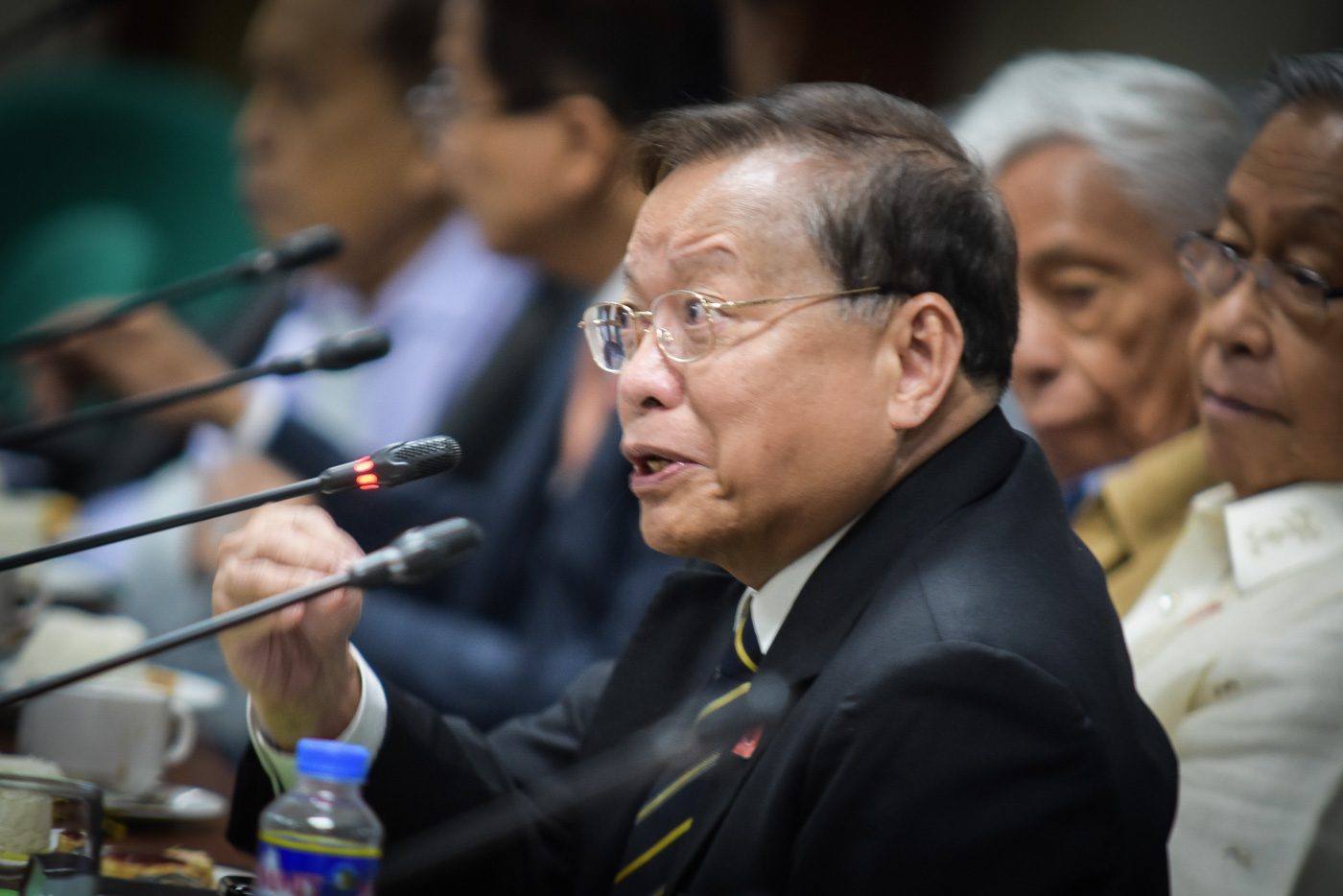SUMMARY
This is AI generated summarization, which may have errors. For context, always refer to the full article.

MANILA, Philippines – The Supreme Court (SC) lacks jurisdiction over “political questions,” and therefore should not be able to intervene when the two chambers of Congress make decisions in the process of revising the Constitution, former chief justice Reynato Puno said on Wednesday, January 17.
“The Supreme Court still does not have jurisdiction to accommodate and decide questions that are political in character. The issue that we are talking about is a political question,” Puno told the Senate commitee on constitutional amendments.
Puno was responding to Senate Minority Leader Franklin Drilon’s question of whether the SC can make the Senate act on a House resolution calling on Congress to convene as a Constituent Assembly.
Puno was chief justice of the High Court from December 2007 to May 2010. Prior to being appointed the “first among equals,” he was associate justice from 1993 to 2007.
The Constituent Assembly is one of 3 modes allowed to introduce changes to the 1987 Constitution. The House on January 16 adopted House Concurrent Resolution 9, calling for the 17th Congress to convene as a Constituent Assembly. The lower chamber is also deliberating and consolidating proposals to amend various parts of the current Constitution.
At the Senate, deliberations on Charter Change proposals is ongoing. It has yet to deliberate on resolutions calling for it to take part in a Constituent Assembly with the House.
Puno said that, ultimately, the Senate is “answerable to the people.”
Under Article XVII, Congress may be convened as a Constituent Assembly. A three-fourths vote of “all its members” is needed to propose amendments to the Constitution. The new draft is then ratified through a plebiscite.
The 1987 Constitution is vague over whether this means Congress should convene and vote jointly or separately. Framers of the Constitution earlier said during the hearing that the 1987 draft was written under the presumption that the country would have a unicameral legislature. This part of the Constitution was apparently left unchanged when framers later voted to adopt a bicameral legislature.
Puno is among the persons President Rodrigo Duterte is eyeing to lead a 25-person Constitutional Commission that would recommend amendments to the Constitution. Although Duterte signed the executive order to form this commission back in December 2016, he has yet to form it.
The former chief justice said that should the Senate not act on the resolution, it would be “lost.” He said the Senate would now be subject to a writ of mandamus, meaning they cannot be compelled to act on it.
“The Supreme Court cannot interfere in the process of amending the Constitution because amending the Constitution constitutes a political exercise and a political question, outside of the sphere of power of the Supreme Court,” said the senator in a chance interview on the sidelines of the hearing.
Senators earlier decided “unanimously” to reject proposals for the House and Senate to vote on amendments to the Constitution jointly. – Rappler.com
Add a comment
How does this make you feel?





There are no comments yet. Add your comment to start the conversation.